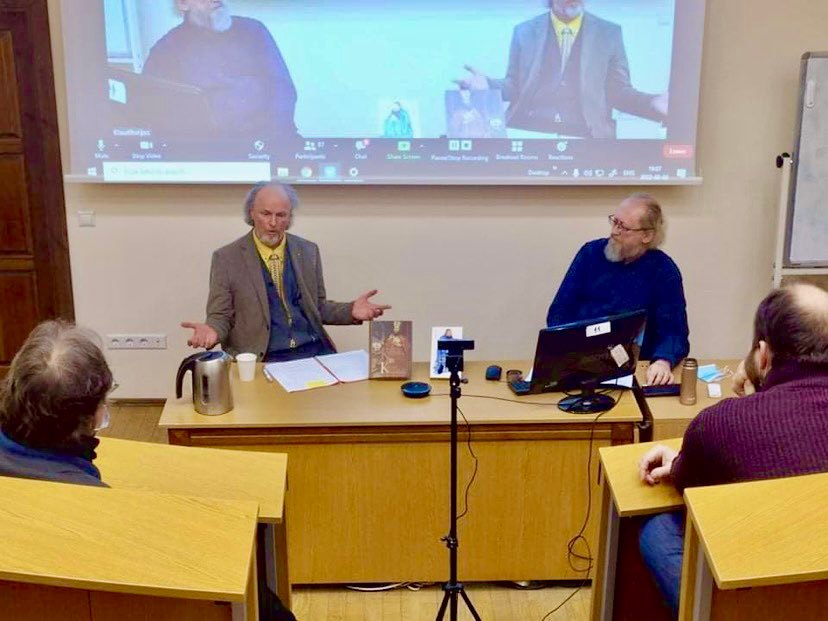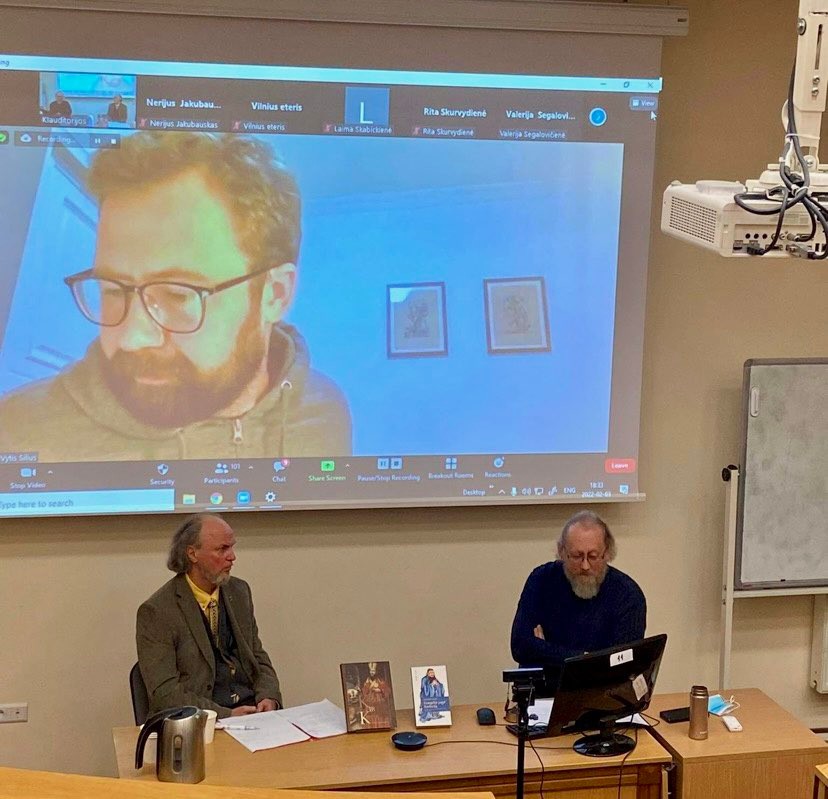On 3rd of February, a book presentation-discussion took place: "Christ and Confucius: an Educational Dialogue", which was attended by prof. rev. Romualdas Dulskis, dr. Vytis Silius (Sun Yat-sen University, China) and prof. Audrius Beinorius (Institute of Asian and Transcultural Studies, Vilnius University). During the event, books by prof. rev. Romualdas Dulskis were presented: “The Gospel of Confucius. The Confucian Way of Wisdom and Its Importance for Christianity” (2021) and “Confucius and Christ. The Confucian Vision of the Human Vocation for the Christian Context” (2018), participants discussed the main ideas of the books.
The books examine a treasure trove of Confucian wisdom, the cognition of which expands the worldview and the horizon of the spiritual life. The author offers an unbiased and comparative approach to Confucianism, thus opening up new perspectives. These books can help to better understand not only the teachings of Confucius, but also our own path and identity, and allow us to look at the characteristics of Christianity from a Confucian perspective.
The author of the books prof. rev. R. Dulskis noted in the discussion that when confronted with Confucianism, the Christian wonders what is the truth about God, man, life, or the way of salvation? When studying another culture, one is confronted with a subjective and objective truth. Delving into another nation's culture often leads to a subjective truth, which prevents from knowing the objective truth. The author argues that the disadvantage of all religions is that they emphasize subjective thinking, which should be avoided when learning about other cultures. It is important to understand other cultures from the inside and to look at them from a comparative point of view. 
Dr. Vytis Silius shared his thoughts on the importance of distinguishing Confucius from Confucianism. Confucianism is a Western term, while in Chinese, Confucianism is called rújiā (儒家), which literally means school/family of educated people. Therefore, it is crucial to understand that the tradition of Confucianism is not limited to the teachings of Confucius, as it was developed both before and after Confucius by various thinkers. Dr. V. Silius also pointed out that the books take an open look at Confucianism itself, which can be a big challenge for people of other faiths. He shared that a person can seek knowledge by looking for a unifying principle to explain the diversity of the world, or by trying to understand the diversity itself, by looking for different forms of understanding the world. The latter is used in prof. rev. R. Dulskis books, which does not put the reader in a box, but invites him to learn about himself and his own thinking through different cultures. 
The moderator of the discussion, prof. Audrius Beinorius, highlighted the threats of comparativism. Two approaches to comparativism are often taken: one is to see one culture as the mainstream, and then look for what other cultures lack. Another approach is comparativism based on theology, looking for keywords from one culture in other cultures and trying to attribute these words to cultures where they do not exist.
